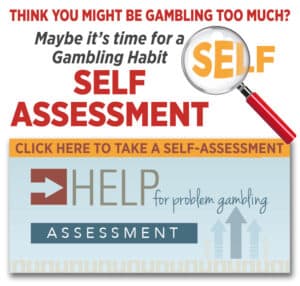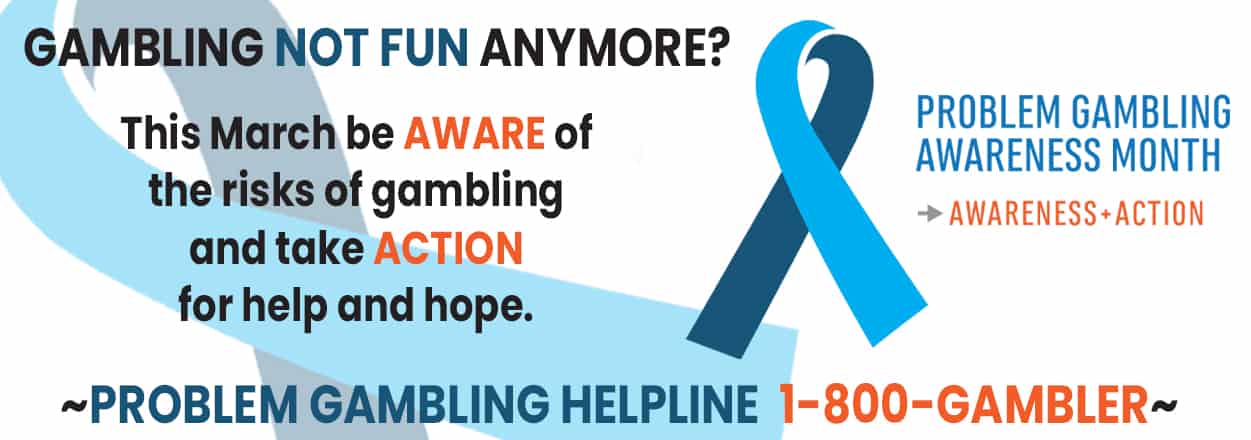Problem Gambling Awareness Month March 2022
Each March, the Center actively promotes Problem Gambling Awareness Month, a grassroots public awareness and outreach campaign established by the National Council on Problem Gambling to educate the general public and healthcare professionals about the warning signs of problem gambling and raise awareness about the help and resources available.
 Be AWARE of the risks of gambling.
Be AWARE of the risks of gambling.
For most, gambling can be fun. But for some, gambling can get out of control. Signs of a gambling problem:
- Preoccupied with gambling (i.e., reliving past gambling experiences, planning the next venture, or thinking of ways to get money with which to gamble)
- Secretive about his/her gambling habits, and defensive when confronted
- Increasing bet amounts when gambling to achieve the desired excitement (“high”)
- Trying unsuccessfully to control, cut back, or stop gambling
- Restless or irritable when not gambling
- Gambling to escape problems
- Trying to win back losses by more gambling
- Lying to family and others about the extent of gambling
- Jeopardizing or losing relationships, jobs, education or career opportunities because of gambling
- Relying on others to bail him or her out to relieve a desperate financial situation caused by gambling
Take ACTION for help and hope.
Call or text 1-800-GAMBLER (1-800-426-2537)
- Counseling for gambling problems at no cost to Maryland residents is now available for anyone seeking help regardless of insurance coverage, financial status, or ability to pay. You can receive help for a gambling problem without adding any additional financial burden to your life.
- Have a conversation with a Peer Recovery Support Specialist who can help you or a loved one navigate resources and remove barriers on the road to recovery from gambling problems. Peer Recovery Support Specialists can help individuals seeking to limit, control or stop their gambling, and connect them to treatment and other useful resources in their communities so they continue to work toward their goals in dealing with any gambling problems. In collaboration with the Maryland Coalition of Families, Peers can also support families who are dealing with issues due to problem gambling.
- Referrals to additional resources for help and information, including Gambler’s Anonymous and GamAnon, are provided confidential, 24/7and confidential by trained and knowledgeable listeners.


